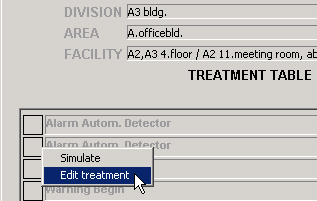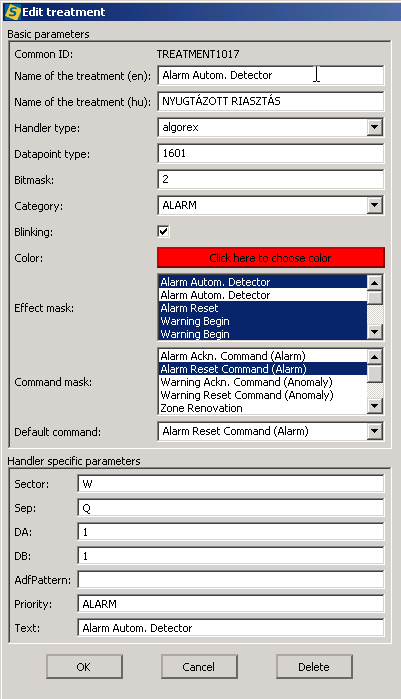Datapoint treatment: Difference between revisions
Jump to navigation
Jump to search
No edit summary |
No edit summary |
||
| Line 8: | Line 8: | ||
[[Image:Treat_popup_status_edit.png|left|caption]] Call the treatment table of a certain datapoint. Right-click on a status and select '''Edit treatment''' menu. | [[Image:Treat_popup_status_edit.png|left|caption]] Call the treatment table of a certain datapoint. Right-click on a status and select '''Edit treatment''' menu. | ||
<br style="clear: both" /> | <br style="clear: both" /> | ||
[[Image:Treat_edittreat_dialog.png|left|caption]] | [[Image:Treat_edittreat_dialog.png|left|caption|frame]] | ||
Edit treatment dialog contains several treatment parameters: | Edit treatment dialog contains several treatment parameters: | ||
* Name of the treatment (en/hu): The name of a certain status in 2 languages. | * Name of the treatment (en/hu): The name of a certain status in 2 languages. | ||
Revision as of 10:06, 4 May 2010
Algorex datapoints are associated with treatment tables. These tables define the behavior of datapoints when different status occures. Behavior means the following associations:
- event category
- eventlist color
- name of status
- etc.
Edit treatment

Call the treatment table of a certain datapoint. Right-click on a status and select Edit treatment menu.

Edit treatment dialog contains several treatment parameters:
- Name of the treatment (en/hu): The name of a certain status in 2 languages.
- Handler type: don't change
- Datapoint type: don't change
- Bitmask: binary value. It determines the order of datapoints on treatment table and beside behaves as a status ID. It is binary because it is used in bitmask operations.